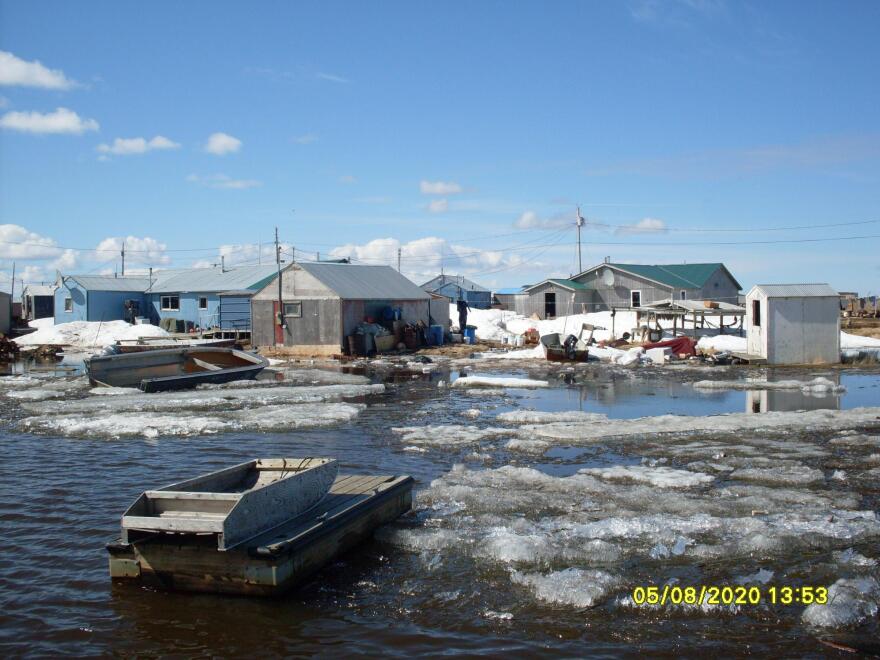Nine Y-K Delta tribes got a boost in funding in September to respond to environmental threats like erosion, flooding, and permafrost degradation. The money comes from the Bureau of Indian Affairs (BIA)’ Tribal Climate Resilience Program. BIA announced awards of more than $1 million to Y-K Delta tribes.
The tribes that were awarded funding are Chefornak, Chevak, Eek, Kasigluk, Kongiganak, Kotlik, Kwigilingok, Napakiak, and Nunapitchuk. They each received between $110,000 and $150,000. This is the second year that the federal program has focused on supporting Alaska Native communities that are facing existential environmental threats.
For most of them, the funding will pay for studies to assess these threats. These studies will look at how severe erosion or permafrost degradation could become over time. They will also predict how much community infrastructure could be impacted. Those communities can then take the results of those assessments to make a long term plan. For example, tribes may use the results to decide whether to relocate, move back from an eroding coastline, or take other actions without moving their community.
For three villages, Napakiak, Nunapitchuk, and Chefornak, the funding will pay for an environmental threat coordinator. Each community has their own name for the position, but it’s a person who manages all the grants and projects related to environmental threats. More and more communities in the Y-K Delta are finding that such a position is necessary.
The BIA’s Tribal Climate Resilience Program is not funded by the infrastructure bill currently being considered by Congress. If passed, that bill would make another several hundred million dollars available to tribes facing environmental threats.






